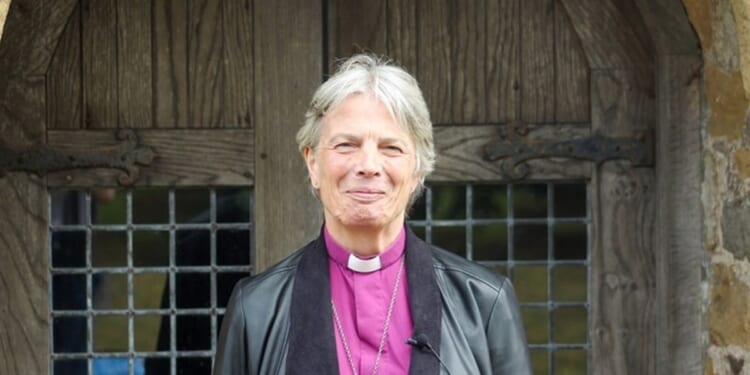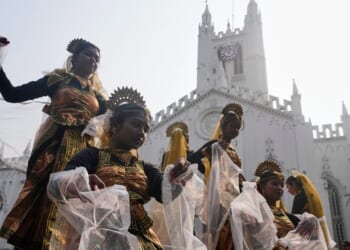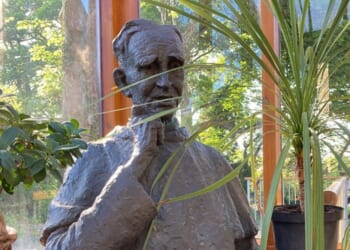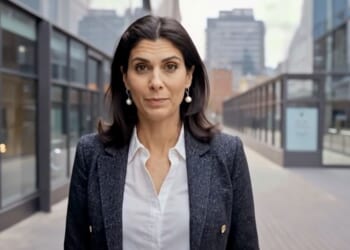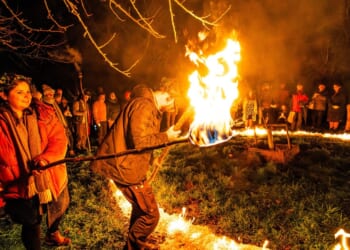IN ADVANCE of the enthronement on Saturday of Cherry Vann as Archbishop of Wales in Newport Cathedral, All Things Considered (BBC Radio Wales, Sunday) consisted entirely of her half-hour pre-recorded interview with the veteran broadcaster Jonathan Thomas.
The first part of the interview was fairly soft-focus. Archbishop Van was brought up in a churchgoing family, and making music in church played a significant part in her development of a lively Christian faith — as it so often is with young people.
She trained for ordination when women could still be deacons, but not proceed to the priesthood; and an awkward diocesan conference shortly after she was ordained priest led to her contacting the head of Forward in Faith in Manchester, seeking mutual understanding. They gathered a group of eight priests — four traditionalist men and four women — whose initial meetings were profoundly awkward; but they ended up meeting for more than 20 years and sustaining deep friendships.
Thomas asked Archbishop Vann about the days when she had to hide her partner, Wendy, upstairs, when callers came to the vicarage. Thomas is an Evangelical Free Church minister; so his audible exhalation of breath was telling. Reflecting on Bishop Vann’s considerable experiences of sexism and homophobia in the Church, Thomas asked her “What has kept you in this Church?” Vann gave the only correct answer — a single word: “God.”
Archbishop Vann restated her view that, although they had not had a formal church ceremony, she and Wendy had married many years previously. She also restated her support for marriage equality in church, but thought that her position precluded pushing for it. Instead, she hoped that she could lead people into accepting that there were different understandings of scriptural revelation.
The second part of the interview was sharper, focusing on the succession of crises which has bedevilled the Church in Wales, as well as the collapse in attendance. Archbishop Vann acknowledged that this was a potentially existential crisis, while also claiming that “surprisingly, new and young people” had started coming to some churches in her diocese.
With only three years in post, hers will inevitably be a transitional archiepiscopate, but perhaps still interesting and fruitful.
Sunday (Radio 4) was also in the game of exploring the backstories of women archbishops or archbishops-to-be. In summer 1982, Jack Guinness, whose father was the Vicar of St Stephen’s, Lambeth, was babysat by Sarah Mullally, then training as a nurse and one of his father’s parishioners (Viewpoint, 31 October).
As Jack was an infant, he didn’t remember much about the experience. What he did provide were some reminiscences on 1980s Southwark Anglicanism, at the time of the Brixton riots and the eruption of AIDS. It recalled a radical and Catholic future for the Church of England which once seemed inevitable, but never actually arrived.

